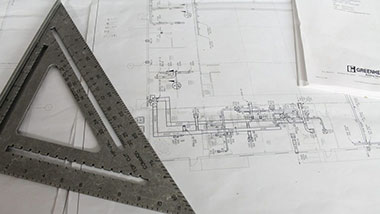Dangerous Instrumentality Does Not Apply to Joint Venture
Personal InjuryIn the case of James Randolph Harris v. Sunbelt Rentals, Inc., et al., Case Number 3D21-2164 (Fla. 3rd DCA February 8, 2023), Florida’s Third DCA reversed a summary judgment in favor of Sunbelt Rentals on the issue of whether the plaintiff had joint control over the machinery.
Facts of the Case
Harris was participating in cleanup from Hurricane Irma in the Florida keys with Risher. The Bobcat at issue had been rented from Sunbelt by Pagan and entrusted to Risher. Harris accompanied Risher to the job site and it was Harris’s job was to drive a truck with debris every time that Risher filled it up. At the time of Harris’s injury, Risher and Harris were both acting in some capacity to load the Bobcat onto a trailer (assuming to leave the job site).
The injury itself was said to occur as Harris reached into the bucket of the Bobcat in order to retrieve some loading ramps. At that moment, the Bobcat moved forward causing the bucket to fall on Harris’s foot resulting in two toe amputations.
The issues before the Third DCA were two summary judgments entered in favor of Sunbelt. First, the trial judge granted summary judgment in favor of Sunbelt on the issue of whether Harris and Risher were acting as joint venturers (or adventurers) with regard to the machinery. The trial court found that they were and, therefore, the legal result would be that Sunbelt could not be responsible for an injury to a co-adventurer under the dangerous instrumentality doctrine.
The second summary judgment granted in favor of Sunbelt was that there was no active negligence on the part of Sunbelt that was a cause of injury to Harris. We will loop back to this issue at the end of the discussion.
Issue for Appeal
The issues on appeal were the two summary judgments described above. The more important issue for personal injury practice is the first. The Third DCA cited Raydel, Ltd. v. Medcalfe, 178 So. 2d 569 (Fla. 1965)(where there was no liability when a bailee injured a “joint adventurer”) and Ferrer v. FGC Enters., 805 So. 2d 967 (Fla. 3d DCA 2022)(an injured joint adventurer is not viewed as an unsuspecting member of the general public and the owner cannot be held vicariously liable for negligent operation).
The summary judgment on this issue was reversed by the Third DCA because there were not undisputed facts relating to issues surrounding joint control and movement of the vehicle with a “common purpose” and “community of interest” at the time of the injury.
While the summary judgment in favor of Sunbelt did not stick in this case, the important takeaway from this is that any time a plaintiff is working with or otherwise has involvement with another person, one can expect a defense of this sort in addition to that of comparative fault.
In this case (as with any), the defense has the argument of comparative fault. The defense can argue that the plaintiff should have known not to have any part of his body underneath something that could fall at any time and that he, therefore, contributed to his own injury. However, the defense also has the argument that Risher and Harris were essentially agents and there would be no third party liability for injury between the two of them (at least as far as dangerous instrumentality is concerned).
While this issue is something to contend with, whether Risher and Harris were co-adventurers or not (even though they likely were) may not impact the final result in the case because of the second summary judgment – that is Sunbelt was not actively negligent to cause injury to the Plaintiff. As a result, this may be a situation where workers compensation is the exclusive remedy and precludes recovery against third parties except in the case of active negligence.
It is unclear from the opinion whether adequate insurance existed with workers compensation or the general contractor (Pagan) to which a recovery could have been made.
Talk To A Lakeland Personal Injury Lawyer About Your Case
At Russo Law, we offer free consultations for Florida personal injury cases. Cases are accepted on a contingency basis with no attorney fees or costs unless money is recovered for you. Call us to schedule your free consultation.


